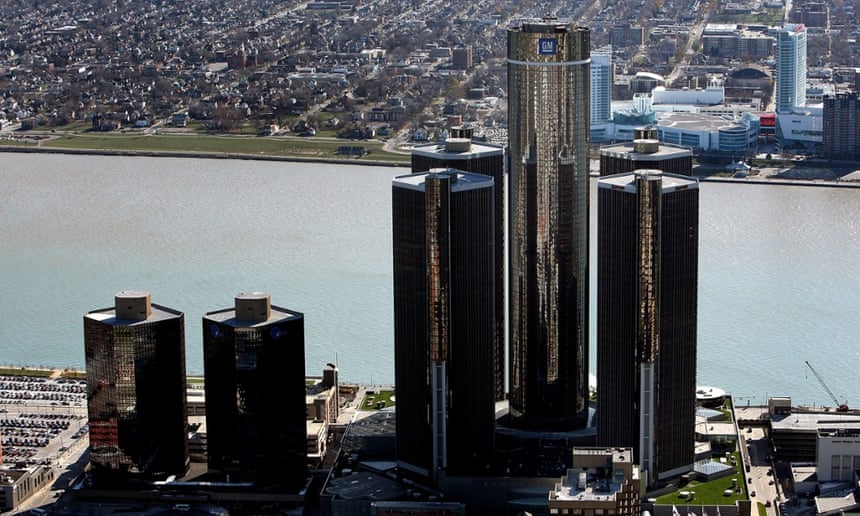
No one has taken as much blame for Detroit’s woes as the major American car companies who, through the early 20th century, concentrated themselves there to such an extent that the city’s name became a byword for the industry.
Despite the contradiction of an urban metropolis owing so much to an explosion in car ownership, for decades the arrangement worked reasonably well. But eventually, as the likes of Ford, Chrysler, and General Motors faltered – especially during the oil crises of the 1970s, when Japanese and European manufacturers gained the upper hand while homegrown ones responded with plant closures and massive layoffs – so the fortunes of the Motor City flagged.
Watching in dismay as his hometown turned hollower by the day, Ford chairman Henry Ford II had an idea: surely if all the car manufacturers – indeed, all the city’s industrial companies – got together, they could pool their resources and build Detroit out of its spiral? And so, in 1970, arose the non-profit organisation Detroit Renaissance, the city’s newest advocate for downtown – and, with its plan to kickstart the local economy by putting up the world’s largest private development, its most ambitious.
Read the whole thing at The Guardian.